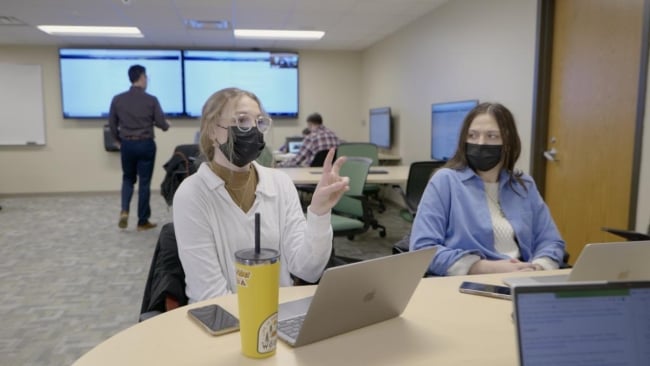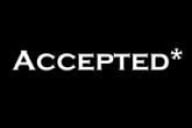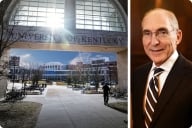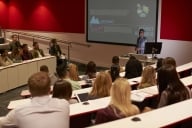You have /5 articles left.
Sign up for a free account or log in.

Courtesy of Minnesota State University at Mankato
It is one of few statements upon which Americans left, right and center agree: the nation faces a civic crisis. Some days the scene appears truly grim. Polarization, rage and militancy vie with cynicism, disengagement and despair in the much-vaunted battle for America’s political soul—all while trampling grace, deliberation and cooperation underfoot.
K-12 schools certainly have a responsibility to address these issues, and one of us (Levine) has been involved in several efforts to reverse the decline of K-12 civic education—most recently through a curricular effort known as the Educating for American Democracy Roadmap. This project convened a philosophically diverse group to provide guidance on what and how to teach in civics. There are also important roles for civic associations, local governments and news media platforms, among other entities.
What about higher education? Surely, civic learning should not end with high school. One of us (Throntveit) spearheads a multi-institutional team now piloting a practical approach to civic education in college, in the form of a Third-Way Civics curriculum for undergraduates. Funded by the Teagle Foundation and anchored at the Minnesota Humanities Center, Third-Way Civics responds not only to pundits’ predictions of a civic apocalypse but to what surveys reveal to be a growing (and far more hopeful) desire among students for a practically democratic education: one that positions them for economic success but also prepares them for lives of public purpose and productive citizenship.
First piloted at Ball State University Teachers College in Indiana and Southeastern University in Florida, Third-Way Civics has now been adopted at additional institutions in Minnesota, including Minnesota State University at Mankato, North Central University, Winona State University and the Minnesota North system of community college campuses in northeastern Minnesota, as well as the St. Paul–based Metropolitan State University’s College in Prisons program.
Why a Third Way?
In a society aspiring to self-government, the civic capacities of the people matter. So, what makes a good citizen?
There are as many answers to that question as participants in the debate. In a free and diverse republic, we would expect people to debate what and how to teach the next generation. Disagreement is a sign that people care about the nation and young people. Indeed, one important purpose of civic education is to draw students into the deep and perennial debates of our republic and to help them develop the knowledge, skills and virtues to continue that discussion.
It is important not to stereotype the positions in this debate. We have known left-wing proponents of assertive patriotism, conservatives whose skepticism about the federal government leads them to emphasize local civic participation, radicals who believe in a canon of foundational texts, libertarians who want to see young people develop practical skills for problem solving so that they can manage with less government and many other flavors.
That said, we do detect two significant camps that are often presented as rivals. One group sees knowledge of the structures and processes of government, familiarity with the basic chronicle of U.S. history and exposure to great works of Western political and social philosophy as the firmest foundations of good, “responsible” citizenship.
A different group worries about treating imperfect systems as natural and permanent and perpetuating exclusionary or oppressive narratives. They emphasize that democratic ideals of freedom and democracy can only be realized through deep criticism, historical redescription, mobilization against injustice and other skills and dispositions of good, “active” citizenship.
The problem with these rival approaches is that each on its own is debilitatingly incomplete. For one thing, few American states or communities are homogeneous enough that they could accept one approach without continued controversy.
More importantly, knowledge without skills to apply it, and skills without knowledge to guide them, are equally impotent recipes for productive citizenship. Even the most ardent patriot must admit that sometimes political systems malfunction, requiring analysis and improvement. Conversely, even the sharpest critic of “the system” must admit that knowledge of its workings, and of the ideas that animate and sustain it, is useful in surviving, surmounting or recasting it.
The purpose of Third-Way Civics is to transcend the civics wars and history wars by facilitating critically hopeful, politically empowering, locally controlled civic learning in the college setting. The immediate goal is to introduce participating students to major developments and debates in the history of American self-government, while helping them relate their learnings to their own public lives and values in practical, nonpolarizing, commons-building ways.
What Is the Third Way, Anyway?
The core of Third Way Civics is a one-semester course, Key Civic Sources and Essential Civic Skills. No single course can constitute a full civics education. This one, therefore, is designed to achieve four foundational yet achievable objectives.
First, it aims to familiarize students with major developments, themes and texts in the history of self-government in the lands now comprising the United States. Second, it aims to help students learn to put themselves, as far as possible, in the social and mental universes of people very different from themselves—without reducing tolerant, empathic inquiry to neutral (or condescending) observation. Third, it aims to nourish the germ of a civic identity that is values-based and action-oriented without being polarizing while, fourth, fostering skills and providing opportunities to develop that identity through the medium of politics in the richest, yet also most essential sense of the term—that is, through activities challenging students to deliberate, collaborate and build mutually productive relationships across their differences.
How Does the Course Achieve These Goals?
A contested canon. Third-Way Civics draws in part on the great books model that some contemporary leaders and critics of higher education seek to revive. A crucial difference is that its canon of key civic sources exposes students to a mix of traditional texts as well as texts (in multiple media) from culturally and ideologically diverse perspectives that illuminate important but less familiar aspects of national development—a mix critical to informed and productive citizenship in today’s pluralistic society.
Another difference is that no text is read in isolation, as if it were the sole or highest authority on a subject. Instead, each week students engage with clusters of texts, curated to convey divergent perspectives on a particular moment or problem in U.S. history. Thus, one week might throw Milton Friedman, Martin Luther King Jr., Phyllis Schlafly, Betty Friedan, Jerry Falwell and Leonard Peltier into conversation—not just with one another, but with the students themselves, each of whom engages different clusters and is required to explain their clusters to their peers.
Put briefly, the syllabus is designed to emphasize the contestation of ideas, perspectives, concepts and practices that has characterized the history of self-government in the Americas since Europeans first colonized the territories of the contemporary United States. The point is not to dwell on discord. Rather, it is to give students an opportunity for testing, revitalizing and revamping our working models of a free and just society.
A contestable canon. To emphasize the complementarity of tradition and innovation in civic life, the Third-Way syllabus itself is designed to be contestable, especially where readings are concerned. Professors are encouraged to substitute readings they judge more relevant to their particular students’ lives, guided by rules of thumb to ensure their substitutions still illuminate the larger theme or debate at issue, emphasize the challenges as well as the promise of American democracy and balance ideological perspectives and cultural traditions. Students, too, have multiple opportunities to challenge the relevance of the course texts and their quality as vehicles of civic learning, so long as they have first taken time to digest and understand them.
Building civic muscle. Complementing the malleable canon of the Third-Way syllabus are activities designed to enhance student engagement with its content while developing the reflective, deliberative and collaborative skills essential to self-government and—not incidentally—prized by employers. Indeed, one primary focus of the course is to challenge the binary of civic and professional life by encouraging students to reflect on the public implications and purposes of their education and, by extension, the vocational paths they are exploring.
Every course meeting is structured to connect traditional, individual civic activities of inquiry, interpretation, fact-checking and synthesis to more relational, political activities. In one course meeting, students might work alone to write an evidence-based response to a prompt; work in pairs to share, challenge and synthesize each other’s conclusions; and work in a group to answer the question “What should we, as citizens, do with what we have learned about the past, the present and one another?”
The goal of such repeated activities is to foster the civic capacities that animate a constitutional framework with the purposes and work of the people—to put civic muscle on the institutional skeleton of democracy. Some of the most frequently emphasized capacities include empathic listening (assuming goodwill and seeking information, not ammunition); public narrative (describing oneself, one’s communities of affiliation and one’s personal interests with reference to broader societal groupings and concerns); historical wisdom (recognizing the contingency of events, structures and systems, and the role of human decisions in shaping them); epistemic humility (recognizing the fallibility of all knowers and knowledge systems); and civic agency (working with others to identify and execute strategies to achieve mutually beneficial goals).
While the activities for fostering such skills are scripted for every class meeting (drawing on evidence-based practices from institutionally diverse and intergenerational educational settings), they are also—like the readings—simply suggestions: their logic and goals are far more important than their specific forms. Instructors are free to make considered changes based on their assessment of what would be more relevant to the cultures of their students, the institution and the local community.
An Opportunity for Teacher Education
Meanwhile, at the K-12 level, the Educating for American Democracy Roadmap envisions a demanding approach to teaching history and civics over 13 years of schooling. Instead of listing ideas, like the number of votes required to pass a bill or the date of the 14th Amendment, it expects students to inquire about hard texts and controversial issues. Although some K-12 teachers are exemplary civic educators (and, often, civic leaders beyond the school), many lack the content knowledge and pedagogical strategies necessary to teach this way. Gaps in content knowledge are particularly widespread among elementary educators and middle and high school teachers whose subjects are not in the social studies. Yet civic questions should (and do) arise in second-grade reading and 10th-grade science and everywhere in the curriculum. Meanwhile, many teachers in and outside the social studies express a desire for immersive civic learning that familiarizes them with nonpolarizing deliberative practices they can use in their own classrooms. To this end, Third-Way Civics can help teacher preparation programs prepare future K-12 educators to teach for democracy by inquiring into its history and practicing its arts themselves. Indeed, more than one of our partners is considering requiring Third-Way Civics for all their teacher candidates on a trial basis.
A Start on the Civic Reconstruction of Higher Education
Building a more just, inclusive and resilient commonwealth is a task both obligatory and profitable for every citizen and institution, especially those with influence over young minds. That said, our institutions of higher education have a particularly important role to play, as they train not just our education professionals but most of the citizens who populate our other institutions. As the Truman Commission on Higher Education declared in 1947, “The first and most essential charge upon higher education is that … it shall be the carrier of democratic values, ideals, and processes.”
That essential duty cannot be discharged without a sectorwide effort to nurture the civic identities, knowledge and capacities of students. Viewed in this light, Third-Way Civics is not just a course in civic learning but an experiment in the civic reconstruction of higher education. Its purpose is not to promote adoption of one specific syllabus but rather to catalyze experiments in values-based, nonpolarizing civic learning in as many higher education settings as possible while providing at least one workable (and adaptable) model with which to start.








